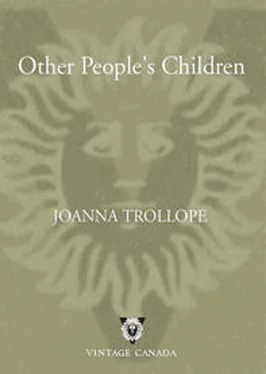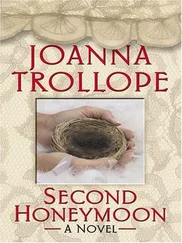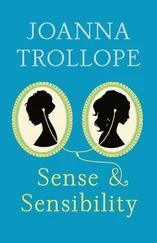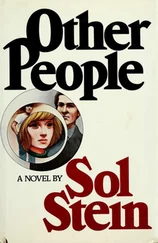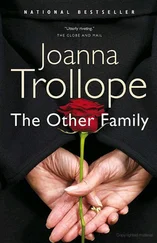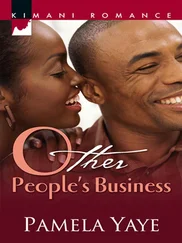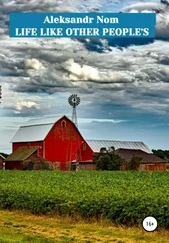Tom Carver put a mug of coffee down in front of her.
‘Your expression isn’t very admiring.’
‘I’m not used,’ Elizabeth said, ‘to being in houses where so much care has been taken.’
‘That’s my profession, however.’
‘Yes, of course. I didn’t mean to be rude.’
‘I didn’t think you were.’ He sat down opposite her. ‘The original occupants of this house would have taken a fantastic amount of care. Wouldn’t they? Especially in the public rooms. Think how fashionable Bath was.’ He paused, and pushed a bowl of brown sugar towards her. ‘Why do you want to live in Bath, anyway?’
‘My father lives here. I know it. It’s easy from London.’
‘Why didn’t you buy a house in London, with a garden, and just come to see your father the odd weekend?’
Elizabeth put a spoonful of sugar into her mug and stirred it slowly.
‘I don’t know. I didn’t think of it. My mind got taken up with this cottage and garden idea.’
‘The Anglo-Saxon rural idyll.’
‘Perhaps.’
‘It’s a very romantic idyll,’ Tom said, ‘very persuasive. Saxons dancing round maypoles—’
‘But they didn’t,’ Elizabeth said. ‘Did they? They crept about in the mud dressed in rags and were dead before they were thirty.’
‘Idylls don’t like that kind of fact. Idylls depend upon an absence of mud and the presence of all your own teeth. Do you have an idyll?’
Elizabeth took a swallow of coffee.
‘No.’
‘Sensible girl,’ Tom said.
‘I’m not sure I am,’ Elizabeth said, ‘but after my mother died, I was very conscious of wanting to change something, do something new, add something. I didn’t want to change jobs because I’m only a year or two away from something quite senior, but I felt – well, I felt that I might be turning into one of those women who taught us at school, and who we used to pity, in our superior and probably quite inaccurate fourteen-year-old way, for having nothing in their lives but us.’
Tom cupped both his hands round his mug.
‘Have you ever been married?’
There was a tiny beat.
‘No,’ Elizabeth said.
‘Have you ever wanted to be?’
Elizabeth looked down into her coffee. Half of her wanted to tell him primly that he didn’t know her anything like well enough to ask such a thing and the other half wished to confide, in a rush of relief at being able to, that she only ever seemed to want to marry men who were already firmly married and that it troubled her that she only felt able to release herself into loving if there was no real danger she might have to commit to it. And yet – and this was an increasing pain — the loneliness caused by this inhibition was getting daily harder to bear. It was beginning to colour everything. It was making her think, as her father had pointed out, that every half-full glass of whisky was in fact merely half-empty. When she had stood in the little house in Lansbury Crescent that morning, she had been able to visualize her solitude there, but not the scene that Tom had suggested, of a summer evening, with the garden door open and a tray of drinks on a table on the patio, and a group of friends. She had friends, of course she did, friends she went to the cinema and theatre with, friends who asked her round for Sunday lunch and failed to fool her, for a moment, despite their loud comical wails of complaint, about the deep proud satisfaction they felt in having children. You could – and she had other single friends who did this – make friends into a kind of family, but in the end your separateness awaited you, not so much in your empty flat, as in your heart. This fact had struck her very forcibly only the week before, when she was filling in a kidney-donor card at her local surgery. Who should be notified in the event of her death? My father, she wrote. And then she paused. When her father was dead, who would it be then?
‘I thought,’ she said to Tom Carver, ‘that we were going to talk about my house.’
‘We are.’
‘But—’
‘I’m luring you into telling me if you really want to spend maybe fifteen thousand pounds on something your heart might not quite be in.’
‘Why should it matter to you?’ Elizabeth said rudely. ‘Why should you care? You’ll get your fee in any case, whether I like the house or I don’t.’
Tom Carver got up and went across to the kitchen counter where he had left the coffee pot. He said equably, ‘You’re quite right. With most clients, I don’t really care. They’re the ones who are making the choices after all, and the consequences of those choices are their responsibility. But—’ He paused.
‘But what?’
‘You’re a nice woman,’ he said simply. He held the coffee pot above her mug. ‘More coffee?’
She shook her head. He filled his own mug. He said, ‘Can I show you something?’
‘Of course.’
He put the coffee pot down and went to the other end of the kitchen which was arranged as a kind of sitting-room, with a sofa and armchairs and a tele vision set. He came back carrying a framed photograph, and set it down in front of Elizabeth.
‘There.’
It was a photograph of a little boy, a boy of perhaps – Elizabeth was never very certain of children’s ages – about seven. He was extremely attractive, with thick hair and clear eyes and a scattering of freckles. He wore a checked shirt and jeans and he was sitting astride a gate or a fence, staring at the camera as if he had nothing to hide.
‘My boy,’ Tom said. ‘He’s called Rufus. He’s eight.’
‘He looks angelic,’ Elizabeth said.
‘I rather think he is,’ Tom said. ‘At least, in his absence, I do.’
Elizabeth moved the photograph a few inches away from her. ‘Is he away at school then?’
‘No. He lives with his mother.’
‘Oh dear,’ Elizabeth said.
‘His mother left me,’ Tom said. ‘Almost a year ago. She left me for the deputy-head teacher of a secondary school at a place called Sedgebury, in the Midlands.’
Elizabeth looked at the photograph again.
‘I’m so sorry.’
‘She’s a teacher, too,’ Tom said. ‘They met at a conference on pastoral care in state education. He has three children. They were married last week.’
‘I’m so sorry,’ Elizabeth said again.
‘Perhaps I should have expected it. Plenty of people told me so. She’s fifteen years younger than I am.’
Privately, Elizabeth thought that this vanished wife might be about the same age as she was, herself.
She said, cautiously, ‘Mightn’t it be a matter of temperament, not age? My parents were twelve years apart, and they were very happy—’
He smiled at her.
‘In our case, it was both.’
The telephone rang.
‘Excuse me,’ he said.
He went across the kitchen to where the telephone hung on the wall and stood with his back to Elizabeth.
‘Hello? Hello, darling. No. No, I’ve got someone here. No, a client. Yes, of course you can. Sunday morning. All well with you? Good week? I wish they’d get you a carphone with all that travelling. OK, darling, fine. Lovely. See you tomorrow.’
He put the telephone down.
‘My daughter.’
Elizabeth looked up.
‘Your daughter!’
He came back to the table, smiling.
‘My daughter, Dale. This is turning into rather a confessional. It must be something to do with your face. I have a daughter of twenty-five and another son of twenty-eight.’
‘How?’ Elizabeth demanded.
‘By the conventional method. My first wife died twenty years ago, from some virus contracted on holiday in the Greek Islands. She was dead in ten days.’
Elizabeth stood up.
‘Saying what bad luck seems rather inadequate.’
Читать дальше
